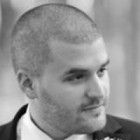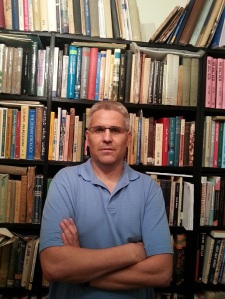New program takes on Israeli ignorance of US Jewry
The article below originally appeared in The Times of Israel. It discusses our foundation’s partnership with Haifa University to create Israel’s first academic program to study US Jewry.
– Jay
By: Haviv Rettig Gur
Israel’s top leaders and senior officials are in New York this week for the UN General Assembly and rounds of peace and security talks in Washington. Between the unfreezing of talks with Iran and the reliably crisis-ridden talks with the Palestinians, Israeli media can speak of little else.
But for the Israeli leaders themselves, the discussions on Tehran and Ramallah take up a relatively small part of the schedule. The lion’s share of their time in the US, as always, will be spent not with foreigners, but with Jews — American Jews. When influential Jews from the “east” visit New York, they are feted by equally influential, or simply wealthy, counterparts in Midtown restaurants, boardrooms and swank Central Park apartments. For the Americans, the meetings are a chance to show they care. For the Israelis, they are something far more practical.
Israeli politicians have many friends in New York, as evidenced by the primary campaign fundraising records publicized after each election by the state ombudsman. Indeed, American Jewish funds are the lifeblood of many an Israeli political campaign. American Jews are also a gateway to Capitol Hill and the Washington elite, offering an ambitious Israeli politician the chance to dabble in a political arena vastly larger than the Israeli puddle to which he or she is accustomed.
So when one asks Israeli politicians whether they are familiar with American Jewry, whether they know something about the single largest Jewish community outside Israel, a community comprising as much as two-thirds of the Diaspora and over 40 percent of all living Jews, one invariably hears the same response: “I have wonderful friends in New York.” (The more active fundraisers might add, “and in Washington and Chicago and Miami and Los Angeles.”)
This is not a new complaint. It has long been noted and lamented that while Diaspora Jews pour their affection and treasure into Israel — some $2 billion each year in American Jewish tax-deductible donations alone — there is little reciprocity in the relationship. Israelis, like their leaders, know little to nothing about their Jewish brethren in the Diaspora, and are rarely concerned with the troubles of the other side.
Now, one Israeli university, together with a philanthropic foundation that has roots on both sides of the Atlantic, hopes to change that imbalance, to tackle head-on the near-universal ignorance among Israelis about the rest of the Jewish people.
“Israelis need America, need American Jews. They don’t have anyone else,” philanthropist Jay Ruderman said, emphatically, in a recent interview with The Times of Israel.
A former AIPAC official, Ruderman now lives in Rehovot. The Ruderman Family Foundation, which he runs, has devoted itself to two issues: improving the lives of those with disabilities and getting the two major Jewish communities of the world, which together comprise over 80% of all Jews, to understand each other better.
He is drawn to the problem of the Israeli-American Jewish relationship in part by his own frustration in trying to have a conversation with Israelis on the subject. During his time in American Jewish advocacy, he often found himself meeting Israeli leaders “to talk about the importance of US Jewry for Israel.” Each time, “I was met with ignorance and not caring,” he recalls.
American Jewry “is an important community with a direct bearing on Israel’s security,” yet any dialogue with Israelis “is in essence a one-sided conversation, always about Israel, always about Israel’s security situation, never about what’s happening in American Jewry.”
This deafness has led Israelis to do great damage to the relationship.
“If you look at the board of any significant organization, like AIPAC for example, my guess is there’s a sizable group of Reform Jews there doing important work” for Israel’s benefit, Ruderman says.
“If Israel starts making statements to the effect that these people aren’t Jews, or that their form of worship isn’t [up to scratch], these people could walk away and say, ‘Israel doesn’t recognize us, so why should I be doing Israel’s heavy lifting in Congress?’”
Israeli leaders, he argues, “must be understanding and nuanced in how they deal with the American Jewish community. I would say to Israeli leaders: You have to understand what’s going on in this community.”
In an effort to combat that gap in understanding and nuance, Ruderman funded several trips for Israeli “influentials” — MKs and journalists — to meet American Jewry. The results, he believes, were mixed.
“These missions were one-off shots, and we were trying to invest in someone who may not retain their position” — of 11 MKs who went on a recent trip, five are no longer in the Knesset.
A few months ago, Ruderman sat down with Haifa University Jewish history scholar Prof. Gur Alroey to discuss more effective ways to tackle the Israeli political elite’s ignorance of the broader Jewish world.
The goal, as Ruderman sees it: “To create a nucleus of leaders who understand the topic, who understand what Israelis need to understand about American Jews, their impact on American society and what’s important to them as Jews, and how [Israeli] decisions, statements by ministers, etc., impact American Jews.”
The result is a new masters program at Haifa University, headed by Alroey, that will be accepting its first class of 25 students this fall.
The program is the first of its kind in Israel — indeed, it is the only graduate program engaged in the systematic study of any Jewish diaspora in the entire edifice of Israeli academia.
Continue reading the post on Times of Israel.
Read our last post: Mythbusters II
Come visit us on Facebook to learn more about inclusion of people with disabilities
About the author
Stay Included
To stay up to date on our most recent advocacy efforts, events and exciting developments, subscribe to our newsletter and blog!





















